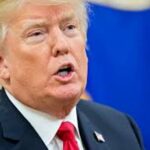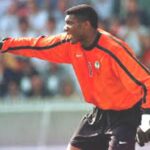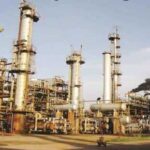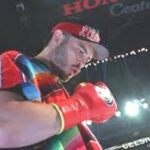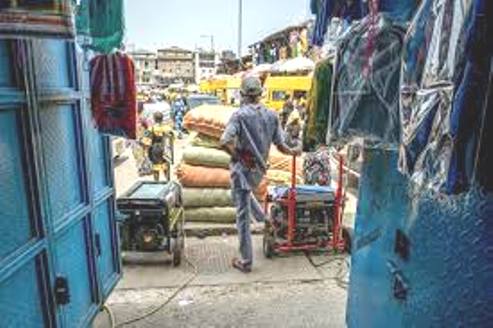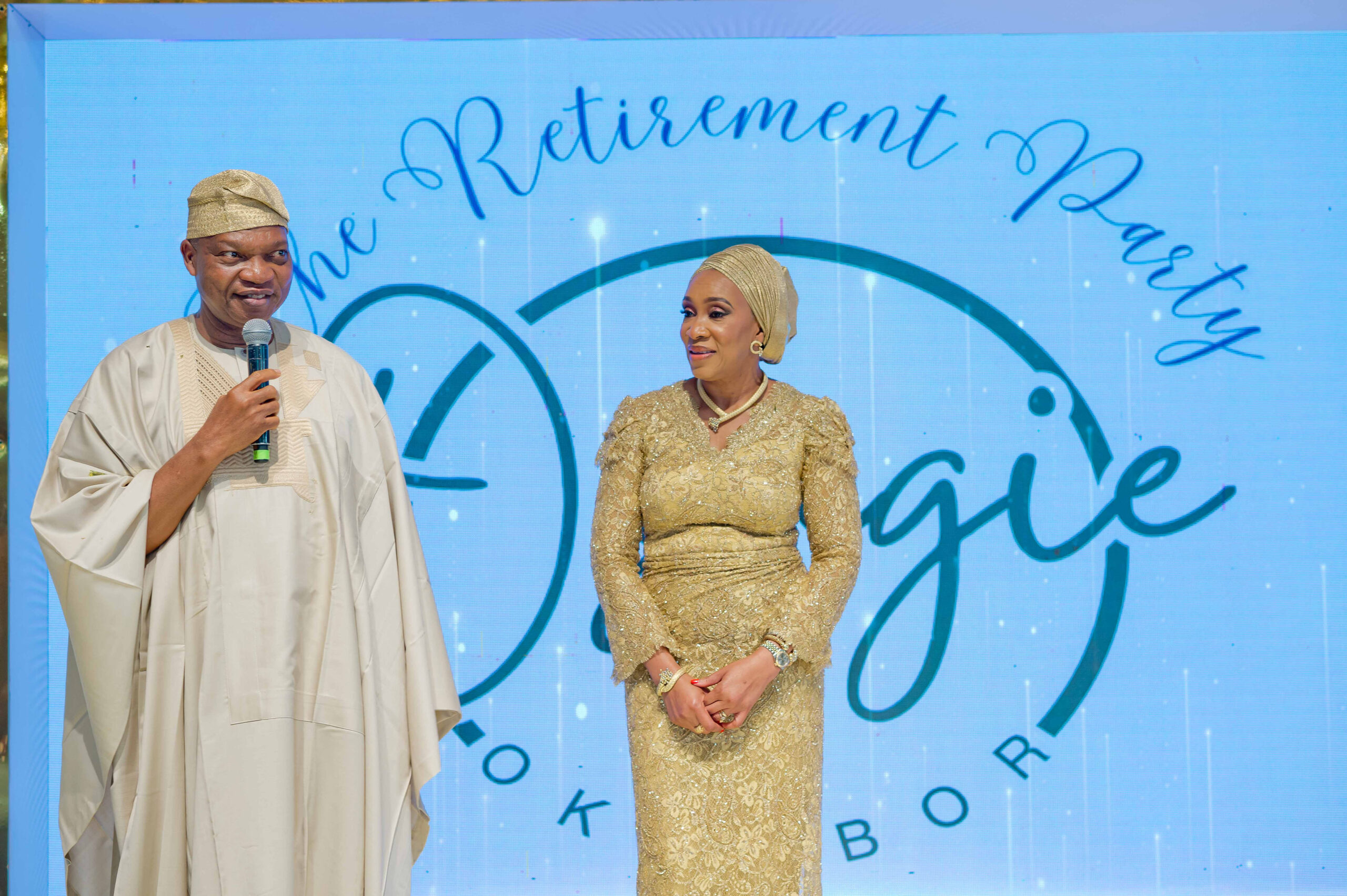LAGOS FEBRUARY 23RD (NEWSRANGERS)-In Nigeria last year, 20 million children did not go to school, the currency hit an all-time low, half of adults were under or unemployed, oil production — the lifeblood of the economy — fell to a 40-year low, and gangs of heavily armed bandits had free reign over large swathes of the country.
Africa’s most populous nation heads to the polls on Saturday, and the next president will inherit an economy and country on its knees. By nearly every metric, Nigerians are poorer and less safe, their country less integrated into the world economy and the geopolitical stage than it was when President Muhammadu Buhari took office eight years ago.
In the run-up to the election, Nigeria has contended with widespread shortages of both gasoline and naira notes, leading to chaotic scenes at gas stations and banks across the country. Protests and subsequent police crackdowns have flared up in major cities. A terrorist attack killed dozens in Buhari’s home state of Katsina. Such dysfunction has characterized the presidency of the ex-military dictator, who was democratically elected in 2015 on a promise to root out corruption and crush the Boko Haram insurgency. Swelling poverty and rampant joblessness have led to instability and violence.
Bola Ahmed Tinubu, Atiku Abubakar and Peter Obi, the three men vying to replace Buhari, have all promised to fix Africa’s largest economy. But the scale of the challenge is immense. With little refining capacity, Africa’s biggest crude producer relies almost entirely on imported fuel, which is often in such short supply that people are forced to sleep in their cars in queues outside gas stations. Nigerians spent an estimated $14 billion last year fueling their generators to compensate for a decrepit grid, which transmits barely enough power for a mid-sized European city.
After eight years in which the country has stumbled through two recessions, it is now more vulnerable than ever to economic collapse, and insecurity threatens to overwhelm the state.
“In some ways, the Nigerian economy has proved to be very resilient, certainly over the last decade or even over the last four decades,” said Shubham Chaudhuri, the World Bank’s country director for Nigeria. “But the risks of things falling apart are growing.”
If Nigeria — home to one in seven Africans, with a GDP twice the size of its 14 West African neighbors combined — continues to deteriorate, Chaudhuri worries that the effects may not stay within its borders. For a country that is on course to be the third-most populous on Earth by 2050, with over 450 million people, this could have dire consequences not just for the region, but for the world at large.
Yet by implementing a few crucial reforms — including cutting gasoline subsidies, unifying a multiple exchange rate regime and removing import and foreign exchange restrictions — the next president has a chance to change the country’s trajectory. These moves, according to Chaudhuri, could enable Nigeria to double or triple GDP growth to between 5% and 7% a year.
All three major candidates have pledged to enact them in one way or another, but it won’t be easy: Buhari’s predecessor was forced to backtrack after his removal of the fuel subsidy sparked widespread protests in 2012. Now, over a decade later, Nigerians are both poorer and more disillusioned.
“Trust in Nigerian state institutions is arguably at historic lows and domestic confidence is near all-time lows,” said Amaka Anku, Africa director for Eurasia Group.
“Nigeria’s next president,” she added, “faces extremely difficult challenges.”
Buhari took office just as oil prices crashed, sending the economy into a recession that was exacerbated by his administration’s policies. A staunch believer in the power of the state to drive development and boost local production — and skeptical of the private sector — he restricted imports, spent foreign reserves to prop up the naira and maintained multiple exchange rates, repelling investors. His decisions to keep the costly gasoline subsidy and borrow heavily to build infrastructure and run a bloated public sector without increasing revenues have helped push Nigeria into a fiscal crisis.
The rise in oil prices following Russia’s invasion of Ukraine last year should have been a boon to Nigeria. But production under Buhari, who also serves as oil minister, has fallen off a cliff. At one point in 2022, a fifth of the country’s crude output was lost to criminal syndicates operating in the Niger Delta. Meanwhile, the government spent more than half of what it generated pumping crude last year on subsidizing the price of imported gasoline for domestic buyers — a bill that ran to more than $10 billion.
“This should be a windfall opportunity,” said Chaudhuri, instead, “the increase in oil prices… has actually had a net negative impact on Nigeria’s fiscal situation.”
In the past, Nigeria could count on crude production to compensate for rising subsidy costs, but the losses from oil theft became so large that output nearly halved between the first quarter of 2020 and last September. This left Nigeria LNG Ltd. — a natural gas joint venture between the state and energy majors Shell Plc, TotalEnergies SE, and Eni SpA — unable to fulfill export orders during a period of peak European demand. Foreign direct investment in Nigeria’s oil and gas sector was just $2.5 million in the first half of last year compared with $208 million in 2014, according to the National Bureau of Statistics, despite Buhari signing long-awaited legislation to attract foreign investment.
And the bills keep piling up. Some of the major projects that his administration has built or completed — including new roads, railways, pipelines and power plants — have encountered serious complications. A light-rail system in Abuja, opened in 2018 and funded with $500 million from China, ceased operations in early 2020. The Abuja-Kaduna railway closed for nine months last year after bandits attacked and kidnapped dozens of passengers. Between January and September 2022, the government spent almost $100 million servicing loans for these two largely inactive rail lines.
A prime example of the president’s approach to borrowing took place just before Christmas, when he asked the Senate to approve a plan to convert a $50 billion loan from the central bank into longer-term debt. The move violated a law limiting such loans, which have soared 30-fold under Buhari. But the money was already gone, spent over his eight years in office.
The profligacy of the central bank has helped drive inflation — which hit a 17-year high in August — and battered the naira, sending incomes backwards. For Patience Onuoha, a 47-year-old seamstress in southwest Ogun state, that has led to a tripling in the cost of materials in the past five years. “We’re not seeing profit,” she said. “By the time I spend money for petrol, spend money for anything, you find out that what I see in my hand is very little. It’s not even easy to eat after work.”
As prices for basic goods continue to rise, the president has occasionally struggled to empathize with the plight of regular Nigerians. “Since we have farmland and God has blessed us with rain, what reason does a Nigerian have to say he’s hungry?” the president said on a Hausa-language TV station in November. “If you are hungry, go to the farm.”
Ahead of the election, an acute cash shortage spread across the country. As part of an effort to bring money into the banking system and rein in corruption, the Central Bank of Nigeria had given citizens six weeks to swap 2.7 trillion naira ($5.85 billion) of high-denomination bills for redesigned notes. Anybody who didn’t meet the deadline risked being left with worthless paper. Critics said the window was impossibly short for a country with one of the lowest bank branch densities and largest unbanked populations in the world.
They were right. The deadline was pushed back by 10 days, amid chaotic scenes across the country — hundreds of people in line at ATMs, farmers traveling hours to deposit old notes, bank branches shutting down early and calling the police on angry customers waiting outside.
“This is an unnecessary hardship to face, and the worst is, we don’t even know why we are suffering this much,” Cynthia Achonu, a 25-year-old administrative assistant, said while waiting in an hours-long line at an ATM in the capital Abuja. “There’s no electricity, there’s fuel scarcity and there’s no water. What is the point of this government? Are they sent to trouble us?”
Less than two weeks before election day, Buhari delivered a heavily edited, pre-recorded national address in which he blamed bankers for the naira shortage and extended the deadline for trading out 200 naira notes to mid-April. This solution — as well as the demonetization plan that prompted it — have been slammed even by the president’s longtime allies, causing a rift within the ruling party.
Buhari has found a willing partner for such moves in the central bank’s governor, Godwin Emefiele. Under Emefiele, the central bank has strayed from price stability and moved in lockstep with the administration, particularly when it comes to propping up the naira and controlling access to dollars.
Among Buhari and Emefiele’s signature policies are restrictions on access to forex for imports of a few dozen products, including toothpicks, poultry and toilet paper. This was meant to encourage local production, but it has had mixed results. Rice, a staple of the Nigerian diet, has been a lynchpin of the strategy, with millions of farmers receiving central bank loans. But yields remain low and broader structural challenges — bad roads preventing goods from getting to market, poor industrial processing capacity — have not been addressed. While rice production went from 6.7 million tons in 2014-15 to 8.5 million tons in 2022-23, according to data compiled by the UN Food and Agriculture Organization, the cost of a 50 kilogram bag of rice has skyrocketed to roughly 35,000 naira from around 10,000 naira in 2014.
As the central bank rations dollars to prop up the naira, which is now worth roughly half of what it was in 2015, Emefiele’s policies have driven away foreign investors wary of joining the long queues to repatriate billions in profits.
“Policies have not been so consistently of a very poor quality since at least the early 1990s,” said Abimbola Agboluaje, chief executive of Lagos-based investment consultancy WNT Capitas. For investors, “it was clear to see the near certainty that they would lose money.”
A spokesman for Buhari did not respond to a detailed list of questions about his performance in office.
Such disruptive policies have contributed to Nigeria’s disappearance from the international stage. One way Nigeria has “ceded leadership” has to do with a landmark $3 trillion pan-African free trade agreement that Buhari delayed signing, meaning the continent’s biggest economy took a backseat during the most significant trade deal in African history. Its secretariat now sits in Ghana, a country with a population and economy one-sixth the size of Nigeria’s, which has also taken the lead on combating jihadism in Africa’s Sahel region. Under Buhari the country “has regressed to become an also-ran” that “does not pull its weight in international affairs,” says Cheta Nwanze, lead partner at Lagos-based consultancy SBM Intelligence.
While Nigeria has never been an industrialized economy, it was for many years considered a military leader on the continent. Now it’s been supplanted by smaller countries, including Rwanda — a country the size of Belgium — which last year began talks with Benin, Nigeria’s next-door neighbor, about sending troops to fight jihadis in the north. Nigeria’s own military is too thinly stretched to help, busy dealing with the bandits that helped make 2021-2022 the most violent period since the height of Boko Haram in 2014-2015.
“The only reason we’re still paid attention in African capitals,” said Nwanze, “is because our size means that we’re unignorable to everyone in these parts.”
The leading candidates to replace Buhari — former Lagos State Governor Tinubu, ex-vice president Abubakar and third-party challenger Obi — have all promised to roll back fuel subsidies and unify the exchange rates, campaigning on more market-friendly approaches. The contest is close enough that the election could go to a run-off, which must be held within three weeks.
Such reforms are almost certain to provoke a political backlash, and whoever takes office is unlikely to be able to implement them quickly. Moody’s Investors Service downgraded Nigeria’s bonds further into junk last month on concerns about the country’s debt burden, slumping oil production and dollar shortages.
Moreover, while Buhari secured his 2015 victory largely on his pledge to fight corruption, the two major party candidates, Tinubu and Abubakar, have long been shadowed by graft allegations. For a population already disillusioned with its politicians, this could make it even harder to rebuild trust in government.
Tinubu, who has never thoroughly accounted for his wealth, forfeited $460,000 in 1993 to resolve a lawsuit after US federal authorities alleged that bank accounts in his name held proceeds from heroin trafficking. His campaign team has said he was never charged with or convicted of any crime. Separately, a 2010 US Senate subcommittee report said one of Abubakar’s wives helped him bring more than $40 million in “suspect funds” into the US while he was Nigeria’s vice president between 1999 and 2007. Both of the latter have denied wrongdoing.
Buhari, meanwhile, has remained characteristically aloof, even as chaos has erupted across the country over the naira redesign. He did nothing for weeks before abruptly promising a solution that did little to satisfy either his allies or critics. In a statement six days before the election, he acknowledged the “current hardship” resulting from the policy. “God willing, there is light at the end of the tunnel,” he said. The detachment was typical of a president who has been frequently disengaged from governance, spending months at a time in London receiving treatment for an undisclosed ailment. In 2019, he felt compelled to address a conspiracy theory that he had died and been replaced by a Sudanese doppelganger named Jubril.
Like Buhari, Tinubu and Abubakar, who has come in last in most opinion polls, are both in their 70s. If Tinubu wins, Nigeria could be in for a repeat performance: thanks to his doddering public appearances, his health has been the subject of rampant speculation. In October, he released a video showing him awkwardly riding an exercise bike as a kind of proof of life.
Obi, a spritely 61, has by comparison been treated as a young upstart — in part because of his youthful, passionate following of “Obidients” who have made him the first ever third-party candidate with a real shot at the presidency. Institutional constraints, including his rivals’ cash advantages, could keep him from winning, but his popularity points to how disillusioned young people are with the status quo.
For a country where the median age is 18 and 60% of the population is under 25, this election could mean that old men will once again be given the power to make decisions with significant impact on the young people who will outlive them, according to Rinu Oduala, a 24-year-old activist.
“It’s depressing,” she said. “We may have to waste our youth in the hands of leaders who may not actually be concerned about the future of young people.”
©2023 Bloomberg L.P.
